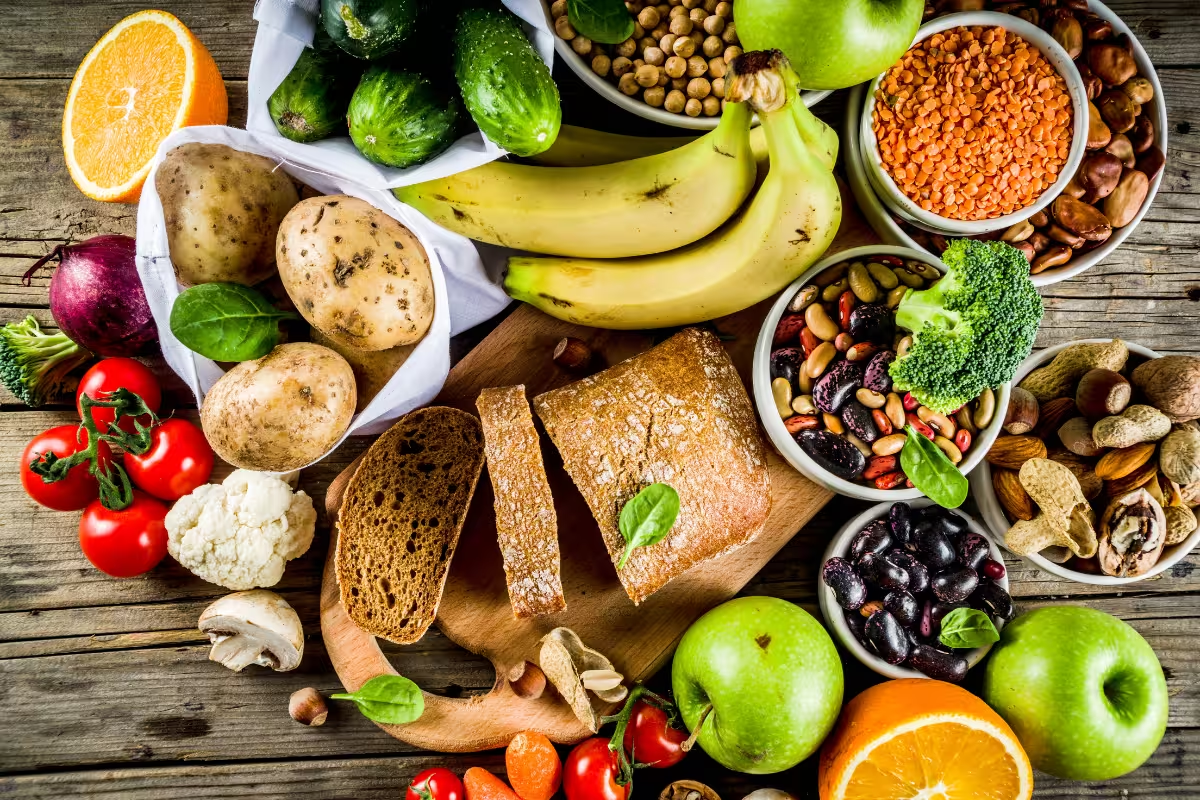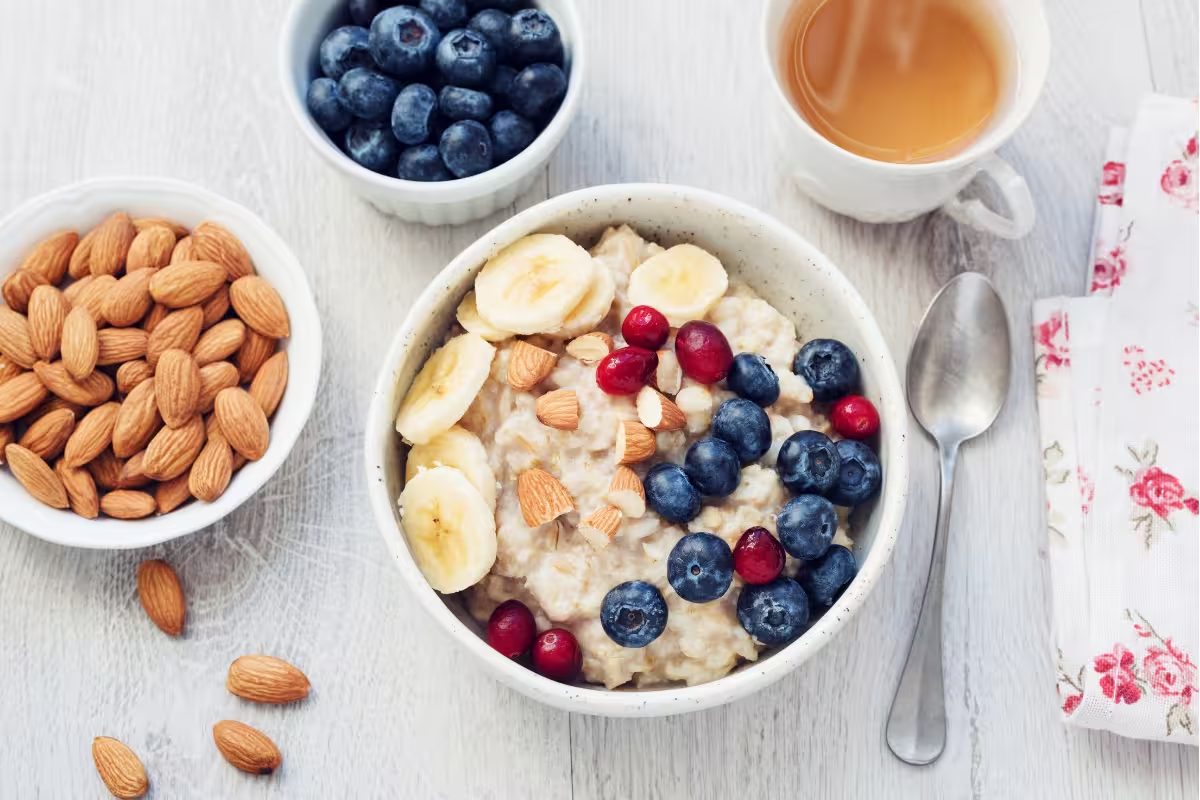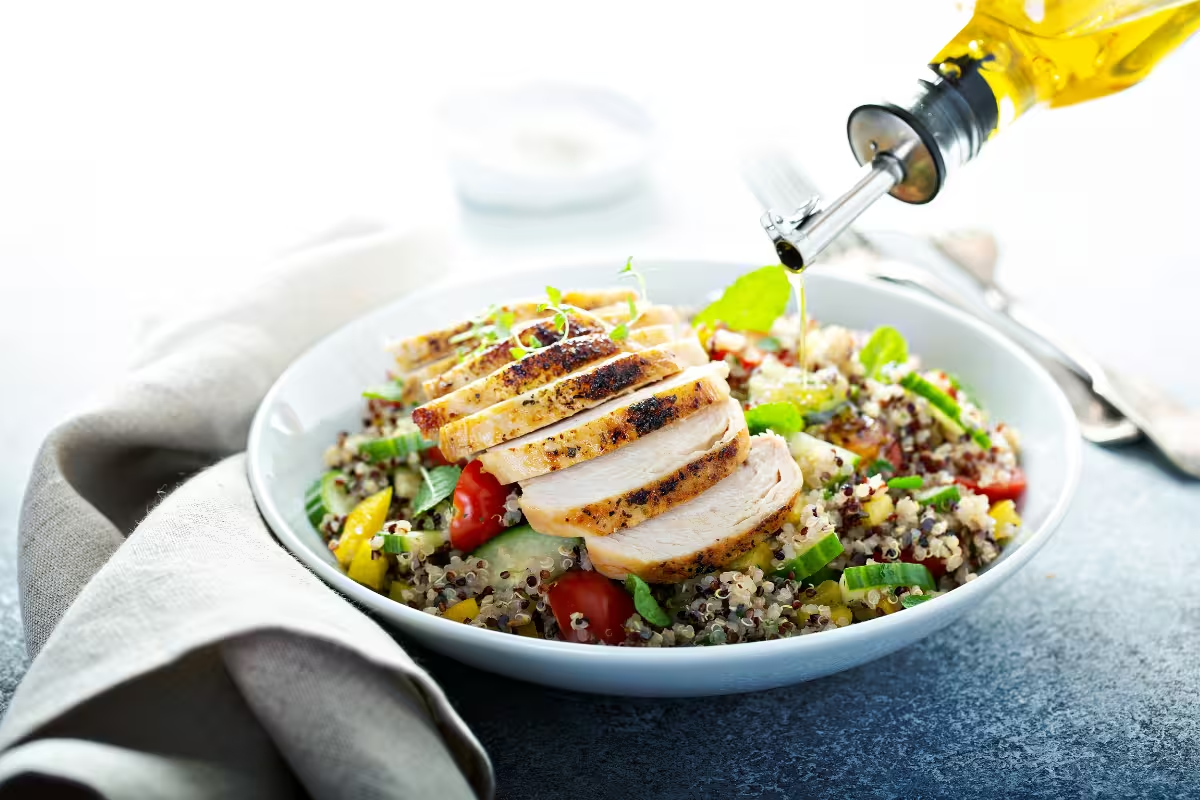What to Eat Before, During, and After a Long Run
Introduction
Proper nutrition is crucial for long-distance runners to enhance performance, maintain energy levels, and promote recovery. Eating the right foods at the right times can significantly affect how you feel and perform during your runs.
Embarrassingly often, I make the mistake of not attending to my nutritional needs before a long run. About 60-90 minutes into my run, I start to feel it. I get starving, and a gel or smoothie isn't enough to make me feel better. Sometimes, I've had to stop at a gas station to buy something to eat to be able to finish my run.
This blog post explores what to eat before, during, and after a long run and why each nutrient is important. Plus, I've included some tasty recipes to help you fuel up effectively.

What to Eat Before a Long Run
Importance of Pre-Run Nutrition
Before a long run, your body needs a balanced meal that includes carbohydrates, proteins, and fats to ensure sustained energy release. Carbohydrates are essential as they are stored as glycogen in muscles and the liver, which your body uses for energy during the run.
Pre-Run Nutrients
- Carbohydrates: Provide a quick source of energy. Opt for complex carbs like oatmeal, whole grains, and fruits.
- Proteins: Help with muscle repair and growth. Include lean proteins such as eggs, yogurt, or chicken.
- Fats: Offer a slow-release energy source. Choose healthy fats like avocados and nuts.
Timing
Aim to eat your pre-run meal 2-3 hours before running to allow for digestion. If you need a small snack closer to your run, choose something light and easily digestible, such as a banana or an energy bar.
Pre-Run Recipe: Banana Oatmeal

Ingredients:
- 1 cup rolled oats
- 1 cup milk (or almond milk)
- 1 banana, sliced
- 1 tablespoon honey
- 1 tablespoon chia seeds
- 1 teaspoon cinnamon
Instructions:
- Cook the oats with milk according to package instructions.
- Stir in the sliced banana, honey, chia seeds, and cinnamon.
- Serve warm and enjoy a nutrient-packed meal that provides sustained energy.
What to Eat During a Long Run
Importance of Mid-Run Nutrition
During a long run, typically lasting over 60 minutes, your body depletes glycogen stores. Consuming easily digestible carbs can help maintain energy levels and prevent fatigue.
Mid-Run Nutrients
- Simple Carbohydrates: Quickly absorbed sugars like glucose and fructose found in sports drinks, gels, and fruits.
- Electrolytes: Essential for maintaining hydration and muscle function. Choose sports drinks that include sodium, potassium, and magnesium.
Timing
Consume small amounts of carbohydrates and electrolytes every 45 minutes to an hour during your run.
Mid-Run Snack: Homemade Energy Gel
Ingredients:
- 1/4 cup honey
- 1/4 cup maple syrup
- 1/8 teaspoon salt
- 1 tablespoon lemon juice
Instructions:
- Mix all ingredients until well combined.
- Store in a small, portable container or resealable plastic bag.
- Take small sips or bites during your run to stay energized.
What to Eat After a Long Run
Importance of Post-Run Nutrition
Post-run nutrition focuses on recovery, replenishing glycogen stores, repairing muscles, and rehydrating. Eating a meal containing carbohydrates, proteins, and fats within 30-60 minutes after your run is optimal.
Post-Run Nutrients
- Carbohydrates: Replenish glycogen stores. Include whole grains, fruits, and vegetables.
- Proteins: Aid muscle repair and recovery. Choose foods with lean proteins like chicken, fish, or tofu.
- Fats: Support overall health and recovery. Opt for foods containing healthy fats like olive oil, nuts, and seeds.
Post-Run Recipe: Quinoa Salad with Grilled Chicken

Ingredients:
- 1 cup quinoa, cooked
- 1 grilled chicken breast, sliced
- 1 cup cherry tomatoes, halved
- 1 cucumber, diced
- 1/4 cup feta cheese, crumbled
- 2 tablespoons olive oil
- 1 tablespoon lemon juice
- Salt and pepper to taste
Instructions:
- Combine the cooked quinoa, grilled chicken, cherry tomatoes, cucumber, and feta cheese in a bowl.
- Pour a small amount of olive oil and lemon juice over the top, then add salt and pepper to taste.
- Toss to combine and enjoy a balanced meal that supports recovery.
Understanding Macronutrients for Runners
Carbohydrates
Carbohydrates are a vital part of a runner's diet, providing energy for training and racing. They maintain blood sugar levels during exercise and replace muscle glycogen. The amount of carbohydrates required depends on an athlete's total daily energy expenditure based on resting metabolic rate (RMR), training intensity and duration, race distance, gender, and environmental conditions.
Type and Timing of Carbohydrates
The type of carbohydrate ingested is just as important as the amount. During carbohydrate-loading periods and when eating meals, focus on complex carbohydrates found in whole foods and avoid highly processed foods. Simple carbohydrates are recommended before running races and during training sessions as they are easily broken down for immediate energy.
Factors Influencing Carbohydrate Needs:
- Intensity: Higher intensity requires more carbohydrates.
- Heat/Humidity: Increases carbohydrate needs.
- Altitude: Higher altitudes increase metabolic rate, requiring more carbohydrates.
Adaptation and Rebound Hypoglycemia
Some individuals experience gastrointestinal issues with increased carbohydrate intake. To prevent this, gradually introduce higher carbohydrate levels as your program progresses.
Rebound hypoglycemia occurs when carbohydrates are consumed too close to exercise, leading to a feeling of energy depletion. Experiment with carbohydrate timing and amounts to find what works best for you.
Protein
Protein is important for your muscles. It helps them with growth, repair, and maintenance. It can also serve as a reserve fuel source once glycogen stores are exhausted. Protein is found in beans, poultry, eggs, dairy, lean meats, and fish. Energy bars and shakes can provide appropriate amounts of protein and carbohydrates. However, protein is not a necessary food source right before a race.
Fat
Fat is an important energy source in athletes' diets. While high-fat diets are not recommended, heart-healthy fats found in fatty fish, avocados, nuts, and olive oil can aid recovery and reduce inflammation.
Micronutrients for Runners
Iron
Iron helps hemoglobin carry oxygen in red blood cells to the muscles, making it critical for endurance athletes. Athletes, especially women, often need increased iron due to menstruation.
Electrolytes
Electrolytes, such as sodium, potassium, magnesium, and calcium, are essential for hydration and muscle function. They help maintain a healthy blood pH balance and facilitate electrical impulses for muscle contractions.
Conclusion
Eating the right foods before, during, and after a long run can significantly impact your performance and recovery. By focusing on balanced meals and timing your nutrition appropriately, you can fuel your body effectively and enjoy your runs more. Try the recipes provided to ensure you're getting the necessary nutrients to perform your best and recover quickly.
FAQs
What should I avoid eating before a long run?
Avoid high-fat and high-fiber foods before a run, as they can cause digestive issues. Spicy foods and caffeine might also cause discomfort for some runners.
How much water should I drink before, during, and after a long run?
Hydrate well before your run. During the run, aim for 7-10 ounces of fluids every 10-20 minutes. After the run, replace lost fluids and electrolytes by drinking lots of water or a sports drink.
Can I run on an empty stomach?
Running on an empty stomach (fasted running) can work for short, easy runs. However, for long runs, it's better to eat beforehand to ensure you have enough energy.
Is it okay to eat sugary snacks during a run?
Yes, simple sugars found in energy gels, sports drinks, and certain fruits provide quick energy that can be beneficial during long runs.
What are good vegan options for pre- and post-run meals?
Pre-run, try oatmeal with fruits and nuts. Post-run, consider a quinoa salad with black beans, avocado, and mixed vegetables for a nutrient-dense recovery meal.
How soon after a long run should I eat?
Aim to eat within 30-60 minutes after a long run to maximize recovery and replenish glycogen stores.